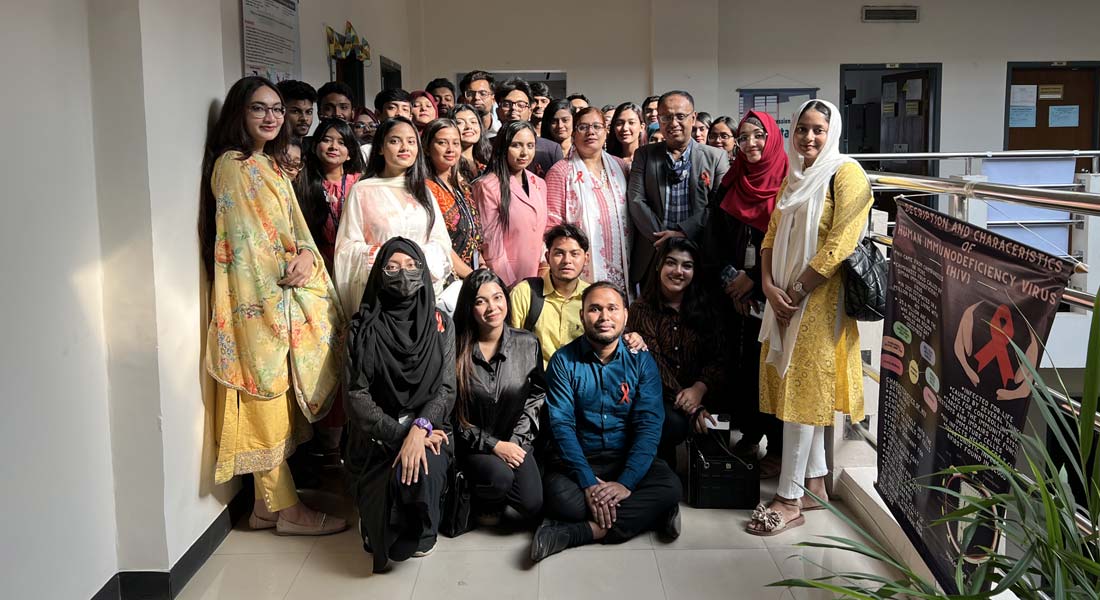
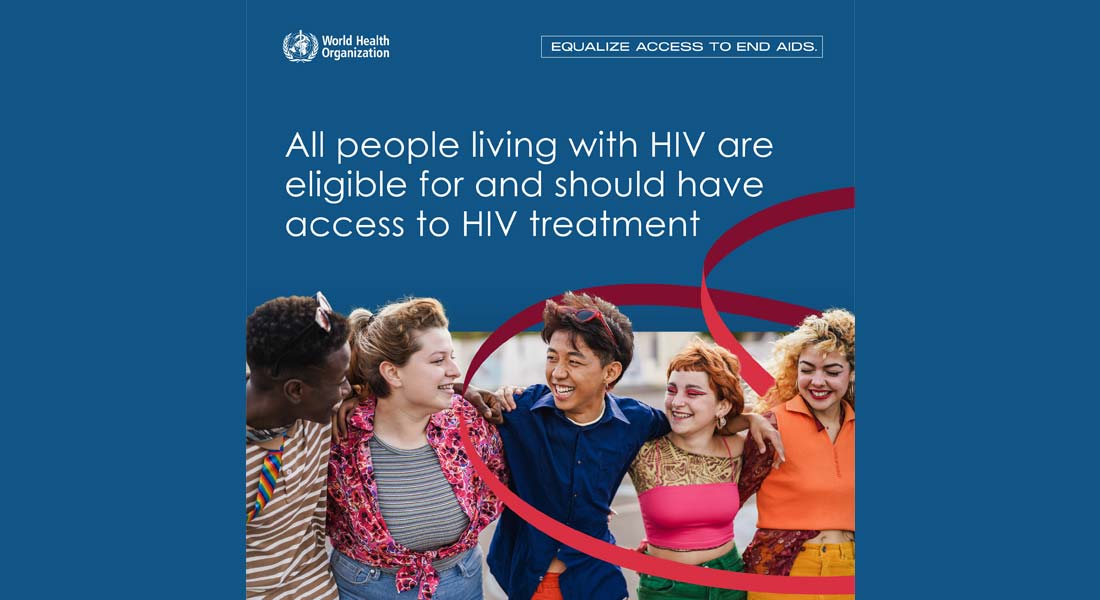
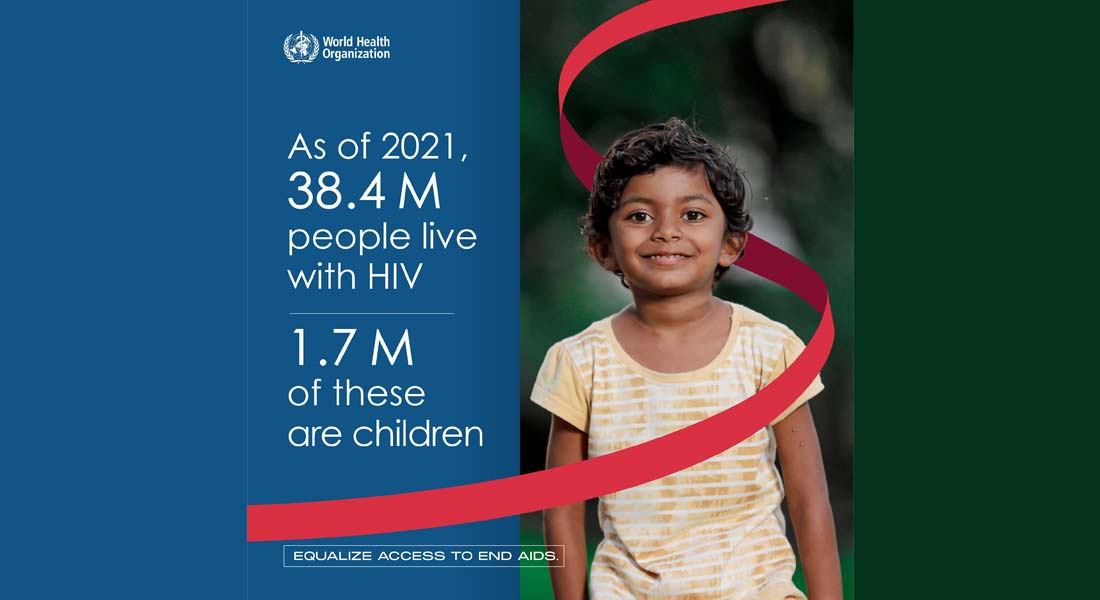
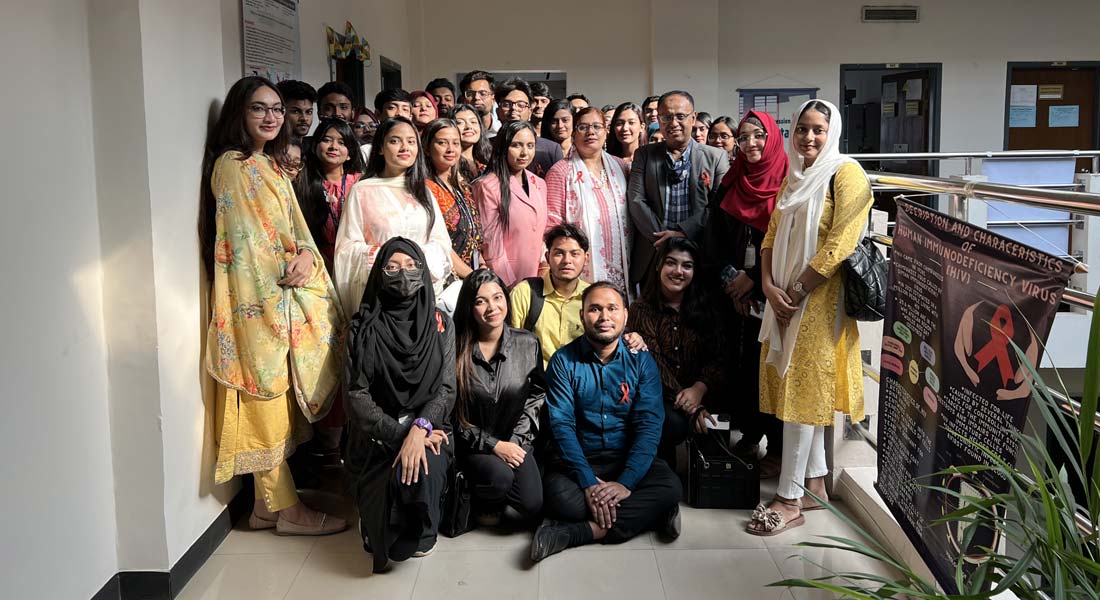
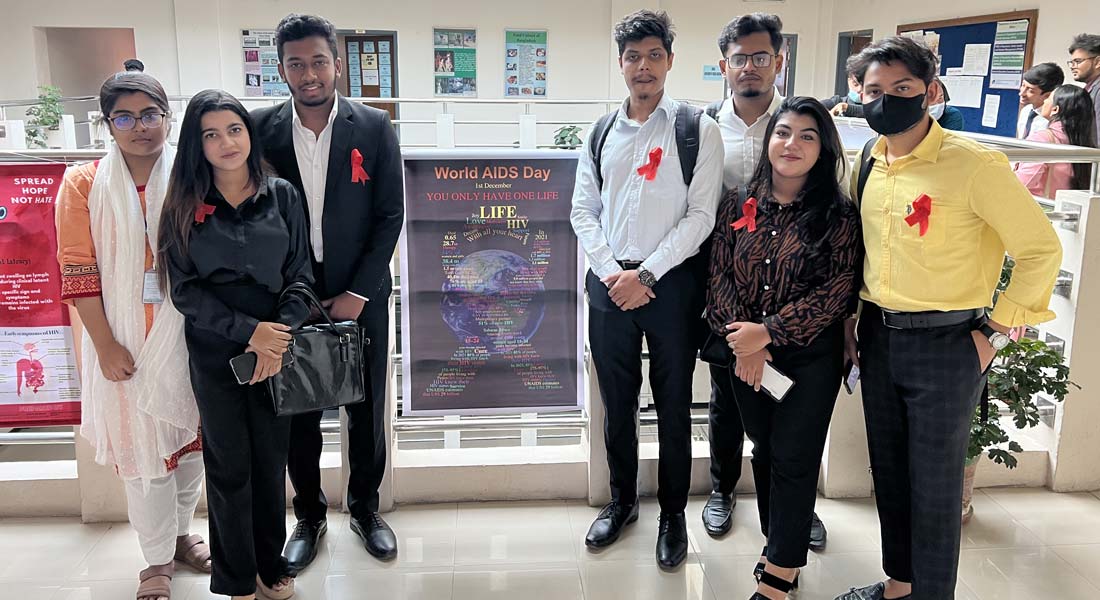
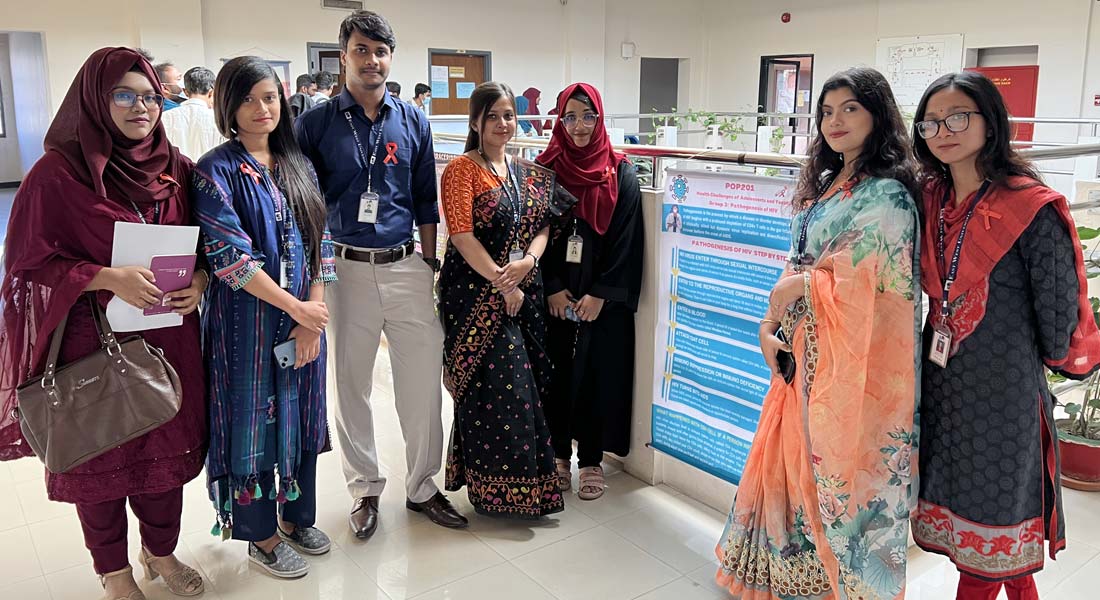
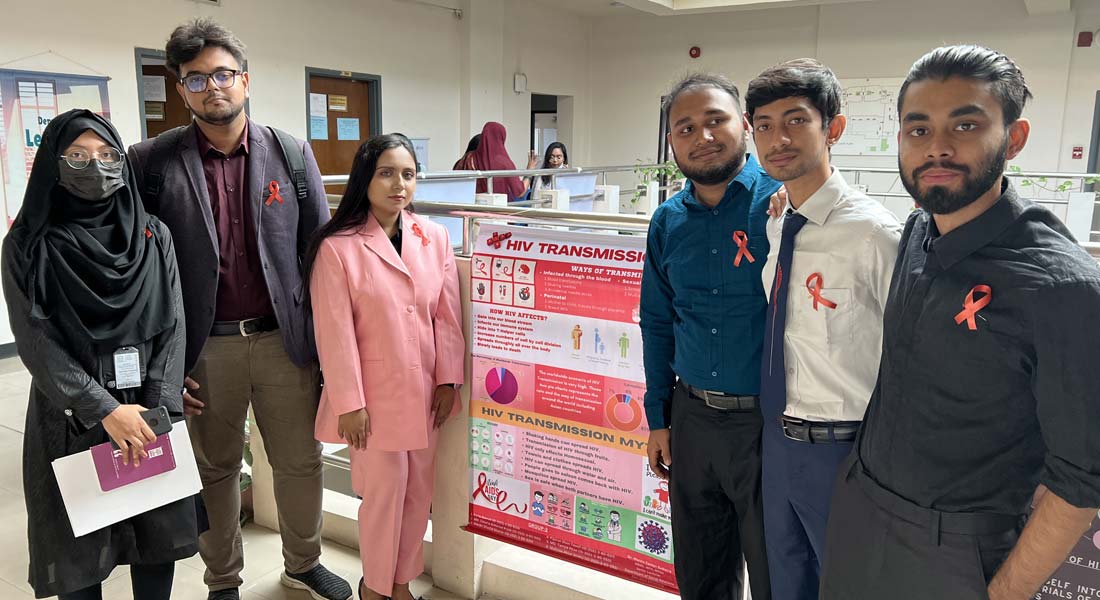
07
Dec
World AIDS Day 2022
On 1st December 2022, Department of Social Relations (DSR), East West University celebrated ‘World AIDS Day 2022’ by organizing a poster presentation on HIV/AIDS. Supervised by the course instructor Dr. Marzia Zaman Sultana, Senior Lecturer of DSR, the students of ‘POP201: Health Challenges of Adolescents and Youths’ prepared few posters related to pathogenesis, risk factors, signs and symptoms, prevention and treatment of AIDS and showcased them in the department. Department Chairperson Prof. Dr. Md. Mobarak Hossain Khan visited the poster presentation site and encouraged the students for their initiatives. In his short speech, he emphasized on creating awareness on important public health issues like AIDS among young students which will encourage them to take all necessary preventive measures to stop transmission of HIV in the country. This year the theme of the day was ‘Equalize Access to End AIDS’. According to World Health Organization, as of 2021, there were an estimated 38.4 million people living with HIV, two thirds of whom (25.6 million) are in the African Region. HIV continues to be a major global public health issue, having claimed 40.1 lives so far. In 2021, 650 000 people died from HIV-related causes and 1.5 million people acquired HIV.
There is no cure for HIV infection. However, with increasing access to effective HIV prevention, diagnosis, treatment and care, including for opportunistic infections, HIV infection has become a manageable chronic health condition, enabling people living with HIV to lead long and healthy lives. HIV targets the immune system and weakens people's defense against many infections and some types of cancer that people with healthy immune systems can more easily fight off. The most advanced stage of HIV infection is AIDS, which can take many years to develop if not treated, depending on the individual. HIV can be transmitted via the exchange of a variety of body fluids from infected people, such as blood, breast milk, semen and vaginal secretions and a mother to her child during pregnancy and delivery. Individuals cannot become infected through ordinary day-to-day contact such as kissing, hugging, shaking hands, or sharing personal objects, food or water. People with HIV who are taking antiretroviral therapy (ART) and are virally suppressed do not transmit HIV to their sexual partners. Early access to ART improves the health of people with HIV and prevents HIV transmission. Key approaches for HIV prevention include: male and female condom use; prevention, testing and counselling for HIV and STIs; voluntary medical male circumcision (VMMC); use of antiretroviral drugs (ARVs) for prevention (PrEP); harm reduction for people who inject and use drugs; and elimination of mother-to-child transmission (MTCT) of HIV.